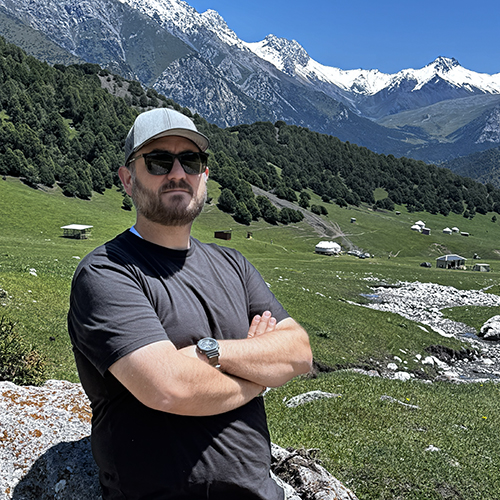Robert Stacey, Dean of the University of Washington College of Arts and Sciences, announced that Daniel Pollack, Professor of Mathematics, is the next Divisional Dean for the Natural Sciences. He succeeds Suzanne Hawley, Professor of Astronomy, who concluded her tenure as Divisional Dean on June 30, 2020.

“It is a pleasure to welcome Dan as the next Dean for the Natural Sciences,” said Dean Stacey. “The faculty in the Natural Sciences are leaders in their fields through their outstanding scholarship and research, and have been recognized with significant grants, contracts and private support. We have also experienced sizable growth in student interest across departments in the Natural Sciences, making the division the largest provider of STEM education in the State of Washington. Dan’s leadership and experience at the departmental and College levels will be invaluable in shaping the future of the division.”
Pollack’s primary areas of research are differential geometry, mathematical general relativity and partial differential equations. In relativity, his work has focused on the study of black holes and initial data for the Einstein equations. These equations lie at the foundation of general relativity, linking the geometry of spacetime with the matter and energy present in the universe. Viewed as a deterministic system of differential equations they describe the dynamic evolution of spacetime from a set of admissible initial data (a snapshot in time of the universe). This initial data is itself constrained by geometric partial differential equations, and Pollack’s work has shed light on the flexibility present in these constraints.
His work has been supported by the National Science Foundation, the Simons Foundation and the University of Washington’s Royalty Research Fund.
Pollack joined the University of Washington in 1996 as an Assistant Professor, after holding faculty positions at the University of Texas at Austin and the University of Chicago. He has held visiting and research appointments at Brown University, MIT, the Institute for Advanced Study, the Mathematical Sciences Research Institute and the Isaac Newton Institute for Mathematical Sciences. He was promoted to Full Professor in 2006.
This past year Pollack served as the interim chair of the Department of Statistics and led the department through a successful external search for a new chair. Over the last four years he has been a member of the Arts & Sciences College Council, chairing the council for the last two years. In the Department of Mathematics, he took on numerous leadership roles including terms as associate chair, graduate program coordinator, director for graduate admissions and chair of the appointments committee.
“My term on the College Council was pivotal in exposing me to the tremendous contributions of my colleagues across the College. The research and training taking place in the mathematical, life and physical sciences is incredibly exciting. I want to acknowledge that we are in the midst of a period of unprecedented change and uncertainty in the world at large and within the university. The critical nature of the work of the faculty in the Natural Sciences is more evident now than ever before and our students are at the leading edge - their work will have a huge impact, globally and locally. It is crucial that we advance this work with an acute awareness of the historical, cultural and human context in which we operate and move forward with a clear intention of where we wish to go. The intellectual environment that we nurture here needs to be one that is inclusive in its welcome and broad and diverse in scope and practice.”
Pollack earned his Ph.D. in Mathematics at Stanford University in 1991. He received his Bachelor and Master’s degrees in Mathematics at the University of Pennsylvania in 1986. While at Penn, Pollack rowed for two years on the lightweight crew team and was, in addition to Mathematics, an English major, with a focus on Drama, finishing two courses shy of completing his degree.
More Stories

AI in the Classroom? For Faculty, It's Complicated
Three College of Arts & Sciences professors discuss the impact of AI on their teaching and on student learning. The consensus? It’s complicated.

A Sports Obsession Inspires a Career
Thuc Nhi Nguyen got her start the UW Daily. Now she's a sports reporter for Los Angeles Times, writing about the Lakers and the Olympics.

Through Soil Science, an Adventure in Kyrgyzstan
Chemistry PhD alum Jonathan Cox spent most of 2025 in Kyrgyzstan, helping farmers improve their soil—and their crops—through soil testing.